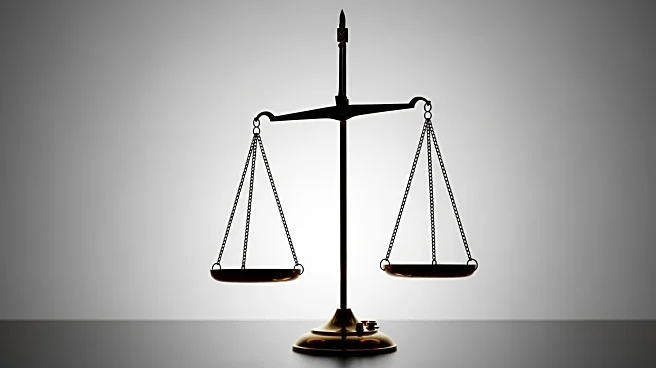What's Happening?
Filippo Grandi, the UN High Commissioner for Refugees, has criticized the US deportation practices under President Trump, suggesting they may violate international law. Grandi highlighted a global backlash against migrants and refugees, exacerbated by funding cuts that have forced the UNHCR to reduce its workforce. Despite these challenges, Grandi praised US-led peace efforts in Congo. The Trump administration has advocated for a revamp of the asylum system, arguing that it has been abused and requires stricter migration controls.
Why It's Important?
The criticism from the UN Refugee Agency underscores the tension between national sovereignty and international human rights obligations. The US's approach to migration and asylum has significant implications for global refugee protection standards. Funding cuts to the UNHCR affect its ability to support refugees worldwide, increasing the burden on poorer countries that host the majority of displaced people. The debate over asylum policies reflects broader geopolitical dynamics and the need for international cooperation in addressing migration challenges.
What's Next?
The UNHCR is likely to continue advocating for adherence to international law in deportation practices, potentially engaging in dialogue with the US government to address concerns. The Trump administration's push for asylum system reforms may lead to further policy changes, impacting refugee protection and migration flows. International stakeholders, including other donor countries, may reassess their contributions to the UNHCR in light of the agency's funding challenges.
Beyond the Headlines
The US's deportation practices and asylum policy reforms highlight ethical and legal dilemmas in balancing national security with human rights. The situation calls for a reevaluation of global migration policies, emphasizing the need for humane and legally compliant approaches. The discourse around asylum and migration could influence public opinion and policy decisions in other countries facing similar challenges, potentially reshaping international norms on refugee protection.









